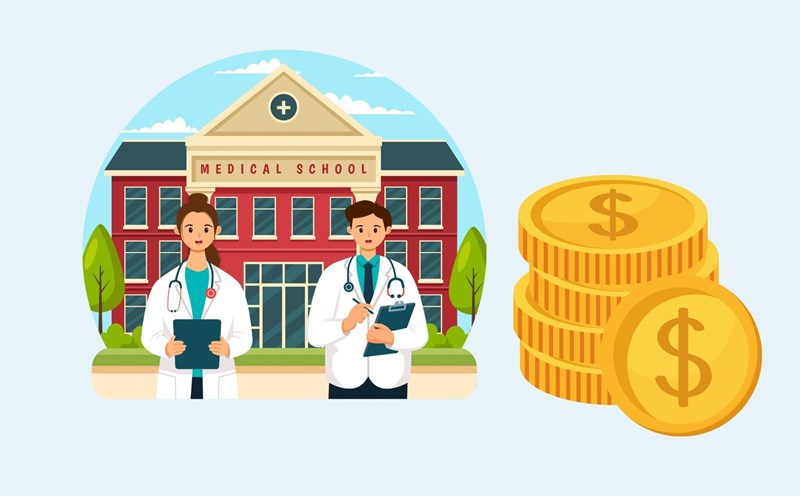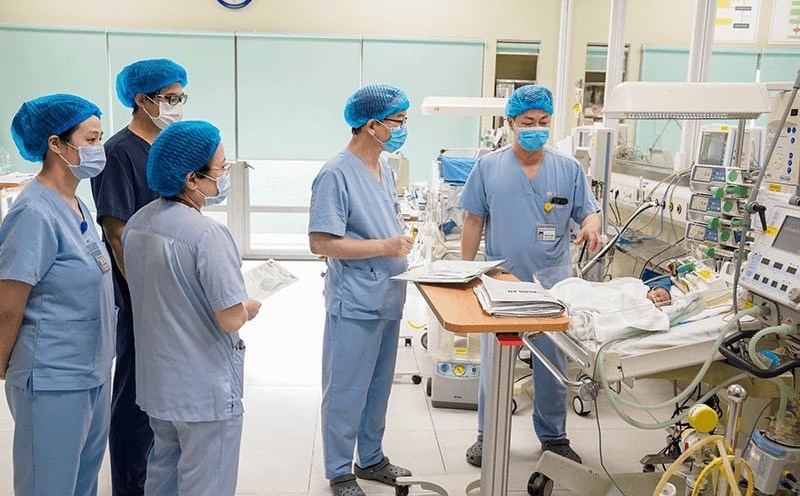"Regarding the proposal to send doctors after graduation to the commune to perform medical examination and treatment duties for at least 2 years, the Ministry of Health acknowledges and will coordinate in studying and proposing appropriate policies" - this is the content that the Ministry of Health responded to the petition of voters sent before the 9th session of the 15th National Assembly.
2-year medical service, according to voters' recommendations, it can be understood that doctors will have to work at grassroots health facilities, especially in rural areas, for 2 years before being transferred elsewhere.
This is aimed at increasing medical human resources, especially in disadvantaged areas and ensuring that people can access better health care services.
"Health service" for newly graduated doctors is a very new concept in Vietnam, however, it is not impossible.
The first time the reporter heard the proposal for a doctor to perform medical service was in an interview, exchanging information with Professor Nguyen Duy Anh - Director of the Central Obstetrics Hospital, Head of Obstetrics and Gynecology, Hanoi Medical University.
"I think there needs to be a long-term policy, supporting doctors after graduation to work in remote areas, mandatory work at the facility, practicing medical examination and treatment for people, like going "mission". After completing their medical service, the doctors will report the results to see what they have done, then they will be transferred to work (if desired) to big cities and other medical facilities. This avoids doctors from continuously dropping out of school and staying in big cities, leading to a surplus of doctors in the city, while there is a serious shortage of doctors in the grassroots health sector" - Professor Nguyen Duy Anh told Lao Dong reporter.
The Ministry of Health also urgently studies and develops plans and roadmaps to implement the policy of exempting all-people hospital fees for the period 2030 - 2035, according to the direction of General Secretary To Lam.
This policy starts with basic health services. To do this, it is necessary to first and foremost comprehensively upgrade grassroots health care, from functions and tasks, organizational models, human resources to equipment. Especially in remote areas, there must be enough doctors to examine and treat outpatient diseases, prescribe testing, paraclinical trials, monitor and manage chronic diseases.
In the context that grassroots health care needs a "push" to be able to develop strongly, meeting the basic needs of medical examination and treatment right at home for the people, then providing medical students with proper training in both theory and practice will be a "new breeze" for grassroots health care.
In return, medical students who have just graduated with 2 years of experience in grassroots health care will be "crucial", cultivating and gaining experience for themselves when participating in daily medical examination and treatment for people. After 2 years, no matter where they are transferred, those experiences will be the premise for the development of their professional capacity.
"2,-year health service" is a proposal worth considering, opening up expectations for an effective solution to solve the shortage of medical human resources in remote areas, ensuring fairness in access to health care services for all people, towards freeing all hospital fees for all people in the near future.











